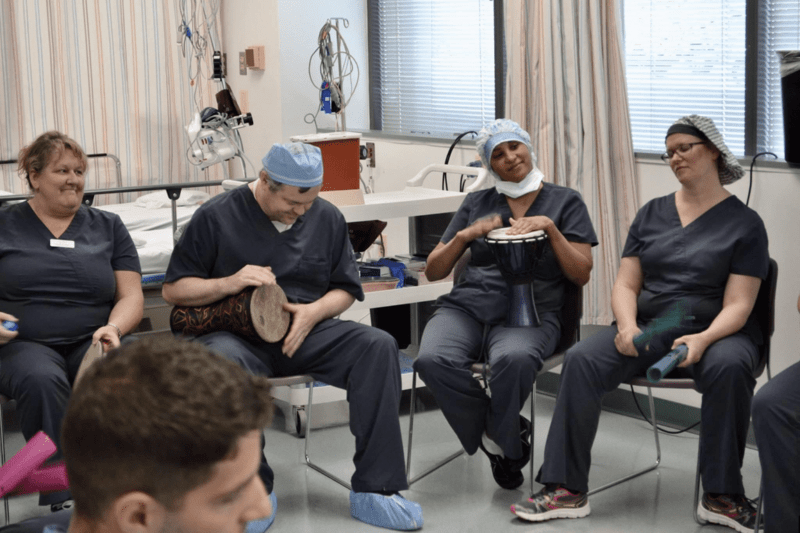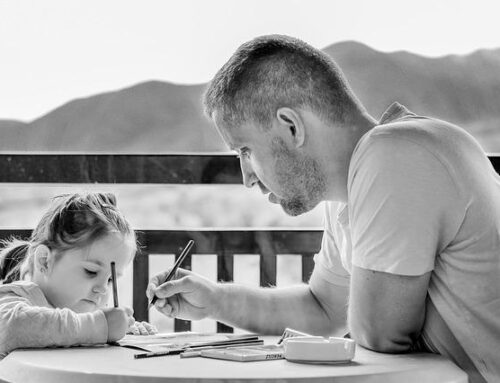Lose Your Mind, Find Your Body
I regularly put drums into the hands of adults that would not consider themselves to be musical.
But well before I begin teaching “non-musicians” how to make improvised, cohesive group music together, I start by creating conditions of safety. This means getting people out of their heads.
It may sound odd, but I get paid to help professionals at conferences and in the boardroom to start acting like kids again. So I’ll remind them before the first note of music is played to remember what it was like to be on a playground. They likely weren’t caught up in an endless narrative of thought worrying:
“What if I mess up?”
“Am I going to look stupid?”
“Is everyone looking at me?”
Nah, kids just play.
And that’s literally my goal when working with professionals; To get them out of their heads and into their bodies so they can more effectively connect and collaborate with their colleagues.
Many of us hear about the mind-body connection, but it can often be difficult to fully appreciate. After all, it can sometimes feel like the mind is running the show to the point that your body is a separate part of you altogether. But if you’re the type of person that often finds yourself overwhelmed with worry, judgment, or anxious thoughts, your body could actually be the way out in any given moment.
Literally directing our attention to our physical presence can help break up the “stuckness” in our heads. In the groups I work with we typically focus on physically creating vibration and sound with a drum. For others it could be as simple as stretching your arms in the air, really feeling the sensation of water from the shower, or just taking one mindful breath in and out.
Many of my clients seeking therapy for anxiety have found great relief learning effective ways to connect with their body. Anxiety for many can both be in our heads and our bodies. Sometimes starting with the body, by slowing our breath and grounding ourselves more physically in the present moment can help create some distance from the overwhelm of anxious thoughts. This is an example of what integrative health in mental health counseling can look like.
For decades we thought psychology was “all in your head,” but you’re so much more and true wellness respects all that you are. So whether you bang on a drum, choose the stairs, or move the meeting to a walk outside, keep choosing to engage your body if you want more peace of mind.
Jordan Goodman, LCPC





Leave A Comment